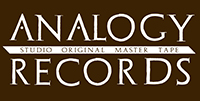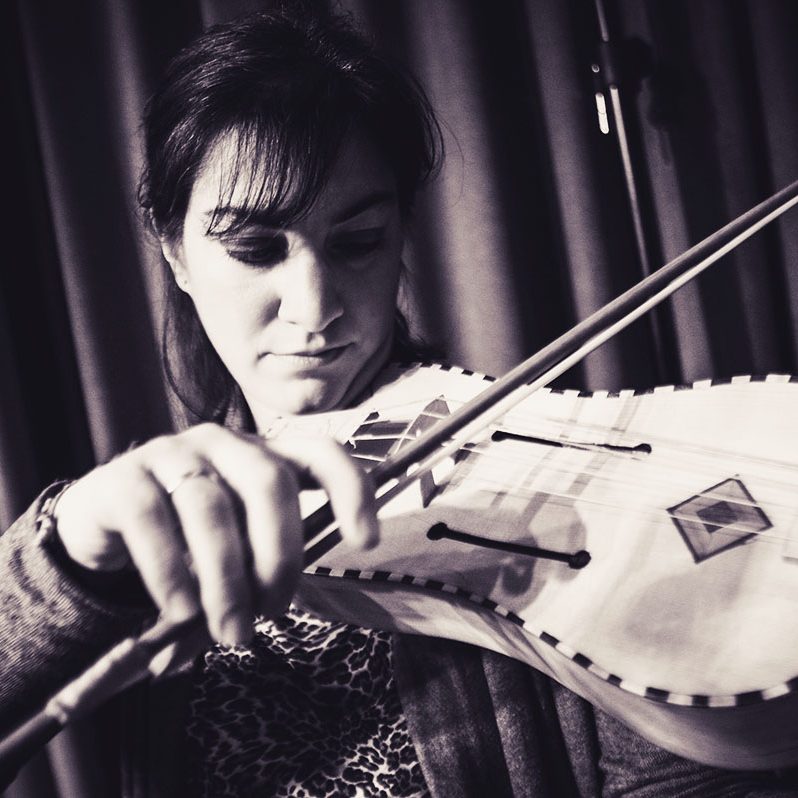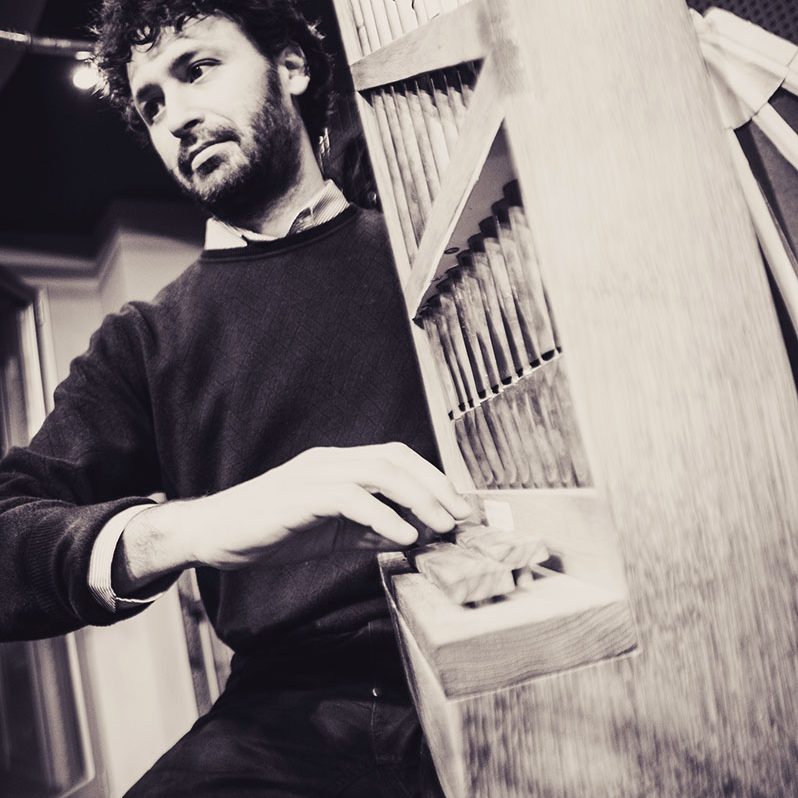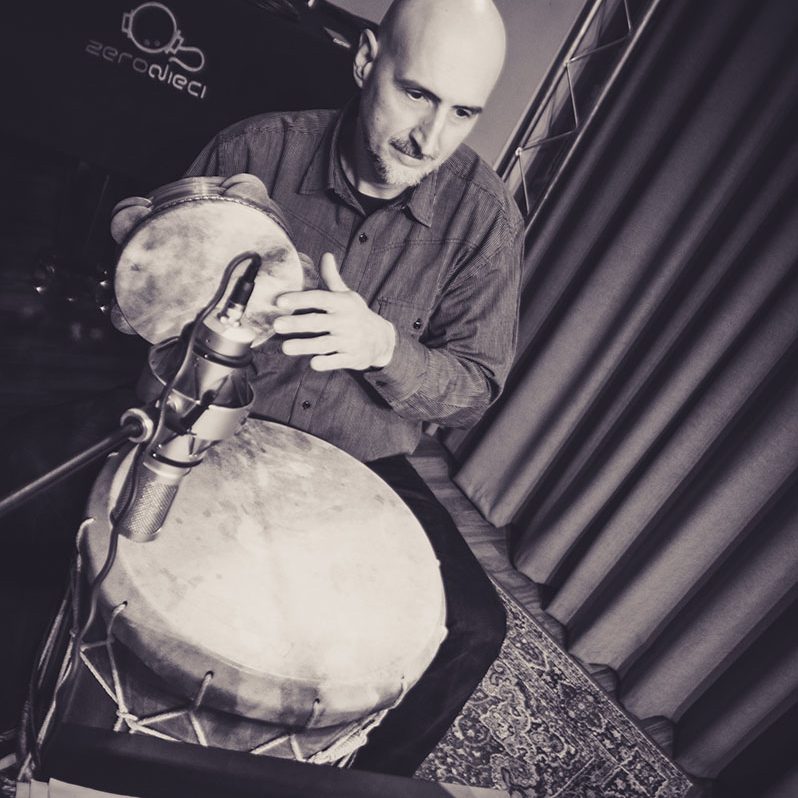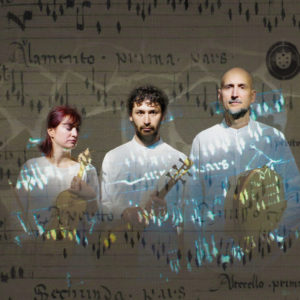
Ensemble Palamento
In Analogy Records since:
January 2019
The Ensemble Palamento originated from the desire to discover the instrumental practices of the Middle Ages in a philological way. Francesco Gibellini, the founder of the ensemble is, in fact, also the founder of the workshop the Antiqui Instromenti that is responsible for philologically rebuilding musical instruments from the Middle Ages to Baroque, based on the iconographic sources and essays of that time. The research aimed at the reconstruction of the instruments is followed by the research for their correct use.
Francesco Gibellini graduated brilliantly in trumpet in 2008 at the “A.Boito” Conservatory in Parma. In 2011 he achieved the 2nd level of Academic Diploma in trumpet with the highest votes, presenting a thesis on the 17th-century essays regarding the natural trumpet. He is also specialized in playing the cornett, the natural trumpet and historical trumpets of the 19th century. He regularly collaborates with orchestras such as Orchestra Sinfonica “A.Toscanini”, Orchestra Filarmonica Italiana, Orchestra del Teatro Regio di Parma, Filarmonia Veneta, Virtuosi Italiani. He plays as a soloist and in groups of chamber music with a repertoire that goes from the Middle Ages to contemporary music. Regarding the ancient music played with historical instruments, he has collaborated with Zefiro Ensemble, Ensemble “Gambe di Legno”, Ensemble il Falcone, Ensemble la Lauzeta.
Since 2016 he has been a professor of trumpet at the A.Bertolucci Music School of Parma. Alongside the trumpet he has always had a passion for the ancient keyboards, particularly the organ and the harpsichord. His curiosity and adaptability alongside his philological research have led him to the reconstruction of musical instruments from the Middle Ages following historical iconographic sources. In 2014 he started a professional activity of building keyboard-based musical instruments from the Middles Ages and the Renaissance that is particularly appreciated in France, Spain, England, Switzerland and Germany.
Clara Fanticini has always flanked the study of modern violin (Academic Diploma of 2nd level with honors at the Conservatory of Parma) with the passion for the ancestors played with “the arms” such as the classical violin, the baroque and medieval vielle, playing with international artists. Along with the antique philological approach, she has also studied contemporary music, playing as a soloist in important Festivals. Having taken a Classical Diploma with the highest votes, she teaches the violin and music in two state schools and gives concert-lessons for listeners from the age of 3 to the elderly.
Flavio Spotti flanks his artistic formation of cultural heritage (he graduated as a Restorer of Mural Paintings at the Regional School for the appreciation of the Cultural Heritage of Botticino) with his musical formation, specializing in historical and ethnic percussion. He studies the Indian Tabla under the guidance of Arup Kanti Das, historical percussions with Pedro Estevan, he examines in depth the technique of the frame drum with Michael Metzler and Glen Velez and he follows courses of zarb (tomback) at the Cini di Venezia Foundation of the Iranian Maestro Bijan Chemiranilo. He has created shows with Armenian music and medieval music with international artists and in important locations and European institutions.
The Ensemble Palamento artists have collaborated with important ensembles of medieval music (L’Homme Armé, La Lauzeta, Korymbos, Die Ganzen Musica) with whom they have participated at important festivals in Italy and abroad (Ravenna Festival, Cantar di Pietre, Concerti al Cenacolo, Stagione Concertistica del Duomo di Modena, Floremus, Festival d’orgue de Sollies-Ville) and recorded for the British broadcasting station BBC (ZCZ Films).
The Ensemble Palamento has held various lessons-concerts for children and teenagers and also adults (Festival Floremus di Firenze, rassegna Wunderkammer del Museo degli Strumenti musicali di Bologna, presso la facoltà di lettere dell’università di Modena e Reggio Emilia, il Centro Studi Boiardo, il Museo Casa Romei di Ferrara).
RELATED PRODUCTS
